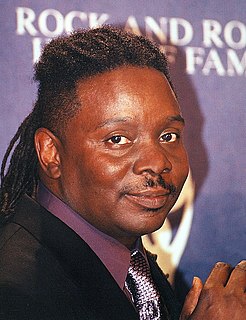Top 263 Philip Quotes & Sayings - Page 5
Explore popular Philip quotes.
Last updated on April 19, 2025.
Shifting Philip Morris to the new a non-risk products doesn't mean that I will give market share to my competitors free of charge. In the markets where we are not present with IQOS yet or the other reduced-risk products, you still need to defend your share of the market. They still represent the bulk of our income, and so far they have financed the billions of dollars we have put behind these new products. But once we go national in a market, and absent capacity constraints, then you shift your resources and your focus to these new products.
Do not suppose that abuses are eliminated by destroying the object which is abused. Men can go wrong with wine and women. Shall we then prohibit and abolish women? The sun, the moon, and the stars have been worshiped. Shall we then pluck them out of the sky? ...see how much he [God] has been able to accomplish through me, though I did no more than pray and preach. The Word did it all. Had I wished I might have started a conflagration at Worms. But while I sat still and drank beer with Philip and Amsdorf, God dealt the papacy a mighty blow.
A man who is furnished with arguments from the mint, will convince his antagonist much sooner than one who draws them from reason and philosophy. - Gold is a wonderful clearer of the understanding; it dissipates every doubt and scruple in an instant; accommodates itself to the meanest capacities; silences the loud and clamorous, and cringes over the most obstinate and inflexible. - Philip of Macedon was a man of most invincible reason this way. He refuted by it all the wisdom of Athens; confounded their statesmen; struck their orators dumb; and at length argued them out of all their liberties.
I want to write about people I love, and put them into a fictional world spun out of my own mind, not the world we actually have, because the world we actually have does not meet my standards. Okay, so I should revise my standards; I'm out of step. I should yield to reality. I have never yielded to reality. That's what SF is all about. If you wish to yield to reality, go read Philip Roth; read the New York literary establishment mainstream bestselling writers
Philip Galanes has fashioned a novel both bleak and funny about a young man's struggle to sort out his troubled love: the too-strong love for his mother, the too-weak love for his suicidal father, and the all-consuming love of anonymous sexual encounters. Pointed and acute, this story tells of the narrator's many betrayals of others and their many betrayals of him. It exists in an uncomfortable moral space where the humor of terrible things sometimes outweighs, but never obscures, their poignancy.
She put a hit on her boyfriend, so it's not like she hasn't murdered someone." "And you know that how?" Sam asks. I'm trying really hard to be honest, but telling the whole thing to Sam seems beyond me. Still, the fragments sound ridiculous on their own. "She said so. In the park." He rolls his eyes. "Because the two of you were so friendly." "I guess she mistook me for someone else." I sound so much like Philip that it scares me. I can hear the menace in my tone. "Who?" Sam asks, not flinching. I force my voice back to normal. "Uh, the person who killed him.
Why had we let it go? Why had we both been condemned...to an exile among dreary strangers who had made us give up all desire for rest, for friendship, for the sound of human voices? Could I now reclaim a single hour spent talking to my brother, Philip, and give it to Ken Daggart? Who made it our duty to accept, as the only reward for our work, the gray torture of pretending love for those who roused nothing but contempt?
The Romans never allowed a trouble spot to remain simply to avoid going to war over it, because they knew that wars don't just go away, they are only postponed to someone else's advantage. Therefore, they made war with Philip and Antiochus in Greece, in order not to have to fight them in Italy... They never went by that saying which you constantly hear from the wiseacres of our day, that time heals all things. They trusted rather their own character and prudence- knowing perfectly well that time contains the seeds of all things, good as well as bad.
From time to time I have wished to do more work in philosophy of religion, but the demands and challenges have been such that it needed more work than I had time for. I sneaked a chapter into my book on loyalty that touched on some issues in the area. Maybe in the future I will try responding to Philip Kitcher's excellent critique: Life After Faith: The Case for Secular Humanism - it gets closer to me than much of what is produced in the field.
I had brief glimpses of emotional catharsis while writing. I remember reading something Philip Roth wrote about how he writes every single day, but it's almost as if he has amnesia every morning - he has almost zero confidence that anything will come but he just sits down and plugs away. And at the end of the day it feels like a miracle: "How did I do that?" I had a similar experience where it was just about putting in the hours and being present.
In short, I will preach it [the Word], teach it, write it, but I will constrain no man by force, for faith must come freely without compulsion. Take myself as an example. I opposed indulgences and all the papists, but never with force. I simply taught, preached, and wrote God's Word; otherwise I did nothing. And while I slept, or drank Wittenberg beer with my friends Philip and Amsdorf, the Word so greatly weakened the papacy that no prince or emperor ever inflicted such losses upon it. I did nothing; the Word did everything.
Let all your preaching be in the most simple and plainest manner; look not to the prince, but to the plain, simple, gross, unlearned people, of which cloth the prince also himself is made. If I, in my preaching, should have regard to Philip Melancthon and other learned doctors, then should I do but little good. I preach in the simplest manner to the unskillful, and that giveth content to all. Hebrew, Greek and Latin I spare until we learned ones come together.
You know that scene at the beginning (of 'Pirate Radio') where I take The Count a cup of tea in the studio, and he shakes my hand, gives me a hug, and slaps me on the arse? That's genuinely the first time Tom Sturridge met Philip Seymour Hoffman. Literally, I'd hadn't seen him or exchanged words with him before. Richard just called me on set and said, 'Take him a cup of tea.' So that's what I did. And the smile of delight as he slaps me on the arse is purely mine.
I started moving away from poets like Wallace Stevens and Hart Crane and started reading poets like, again, Karl Shapiro, Howard Nemerov, Philip Larkin, and the British poets who were imported through that important anthology put together by Alvarez - and those would include Thom Gunn and Ted Hughes. And I think these poets gave me assurance that there were other ways to write besides the rather involuted style of high modernism whose high priests were Pound, Eliot and Stevens, and Crane perhaps.
The seeds of Illumination's origin sprang from an idea lead singer Philip Bailey had of collaborating with new generation of soul artists for his next solo album. The idea of illumination is vibrant and positive. Earth Wind Fire collaborating with the new soul movement made sense because the thrust of their music is still about playing instruments and utilizing vintage sounds, only in today's setting.
The problem Philip Morris had with electronic cigarettes since the beginning of development was the satisfaction of the smoker. Because the taste is dramatically different and, at the initial stages, the nicotine pharmacokinetics were very slow. You could not get the satisfaction. It's not so easy to crack this code. The taste satisfaction is very important. The closest you are to this, the more chances you have to switch people. It's very nice to have a zero-risk product, but if nobody uses it, you don't have any reduction in public health risk.
I never did know exactly what was meant by the term "The Beats," but let's say that the original meeting, association, comradeship of Allen Ginsberg, myself, Michael McClure, Lawrence Ferlinghetti, Philip Whalen, who's not here, Lew Welch, who's dead, Gregory Corso, for me, to a somewhat lesser extent (I never knew Gregory as well as the others) did embody a criticism and a vision which we shared in various ways, and then went our own ways for many years.
I don't think young black men, or anybody, should get a criminal record for low-level use. You know, I don't think that we should spend our law enforcement time jailing or imprisoning marijuana users. But to solve that problem, you don't need to go to the other extreme of creating Big Tobacco 2.0. Make no mistake about it: Legalization is not about, you know, Cheech & Chong smoking marijuana or, you know, a Grateful Dead concert; it's about creating the next Marlboro of our time, the next Philip Morris and R.J. Reynolds, the Big Tobacco all over again.
Philip Glass, like [Virginia] Woolf, is more interested in that which continues than he is in that which begins, climaxes, and ends... Glass and Woolf have both broken out of the traditional realm of the story, whether literary or musical, in favor of something more meditative, less neatly delineated, and more true to life. For me, Glass [finds] in three repeated notes something of [a] rapture of sameness.
Philip wasn't the sort of man to make a friend of a woman. He wanted devotion. I gave him that. I did, you know. But I couldn't stand being made a fool of. I couldn;t stand being put on probation, like an office-boy, to see if I was good enough to be condescended to. I quite thought he was honest when he said he didn't believe in marriage -- and then it turned out that it was a test, to see whether my devotion was abject enough. Well, it wasn't. I didn't like having matrimony offered as a bad-conduct prize.
I was less angry at [Carl] Armstrong, though I was angry at the people who came to his trial: Dan Ellsberg, who ordinarily I respected a lot; Philip Berrigan; the guy who teaches at Princeton still - I can't remember his name. And they were saying - well, they were saying, really, what Arthur Koestler had people saying on "Darkness at Noon." The means were unfortunate and, sadly, someone died, but the end is what is important and this was a great symbolic - something or other - sign against the war in Vietnam.
According to, for example, one academic by the name of Philip Harvey, whose expertise is basically how do we create a New Deal, today. According to his estimate, these jobs could be created for far less than the [Barack] Obama stimulus package, which cost, you know, $700 or $800 billion, something like that, and produced around 3 million jobs - not a lot. According to his estimates, it would cost less to produce two-thirds of 20 million.
Misgovernment is of four kinds, often in combination. They are: 1) tyranny or oppression, of which history provides so many well-known examples that they do not need citing; 2) excessive ambition, such as Athens' attempted conquest of Sicily in the Peloponnesian War, Philip II's of England via the Armada, Germany's twice-attempted rule of Europe by a self-conceived master race, Japan's bid for an empire of Asia; 3) incompetence or decadence, as in the case of the late Roman empire, the last Romanovs and the last imperial dynasty of China; and finally 4) folly or perversity.



















